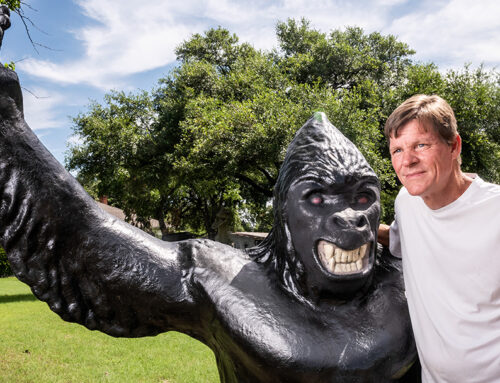Marley was dead. And good riddance, thought Scrooge. He had actually suggested giving the clerical staff health insurance and a 401K. Mrs. Scrooge was gone, too, taking the children after an especially nasty row in which Scrooge told her that only losers volunteered at Stonewall Jackson. Who needs that? thought Scrooge. Not me. He was No. 17 on D’s list of fabulously successful professionals, he had his McMansion in Lakewood Heights, and a Hummer in the garage.
Of course, not everything in Scrooge’s life was perfect. His admin, Roberta Cratchit, had balked at working on Christmas Day. Even more incredulously, she threw a fit when Scrooge asked her to work off the clock. Obviously, he thought, she wasn’t a team player.
Scrooge’s iPhone beeped. When he opened the browser, the face of a woman appeared. Scrooge closed the page, but the face didn’t go away.
“Do you recognize me?” asked the face.
Scrooge closed the page again, but the face was still there. He looked at her, and suddenly he remembered walking around White Rock Lake with his wife and his children. One of the kids was holding his hand, squeezing it in the way small children do.
That set off another memory: Scrooge and his family having a dinner at their neighbor’s house, a woman who had lived in the neighborhood since World War II, when she was a small girl. Her house had been torn down to build a McMansion just like Scrooge’s, but he couldn’t remember what had happened to the woman.
The iPhone beeped one more time, and the face was gone.
Nuts to this, thought Scrooge. He picked up the remote, turned on his 50-inch flat-panel HD-ready plasma TV.
Another face appeared, this time a man with a red beard.
“Do you recognize me?” he asked.
Scrooge changed the channel, but the face was still there. Then it faded, and on the screen, Scrooge saw Roberta Cratchit at her kitchen table. At least he thought it was her kitchen table, because it’s not like he would have ever been to her house. She was leafing through what looked like a pile of bills, occasionally pulling one out and making a note on it.
Scrooge thought he saw a checkbook, but Roberta wasn’t writing any checks. Her son, Tim, walked in. He looked like he had been crying. Roberta hugged him, kissed his forehead.
“I know, honey, I know,” she said.
This time, Scrooge didn’t try to change the channel. He watched until the scene faded, and then the face reappeared.
“I think, maybe now, you do recognize me,” said the face.
Scrooge needed a cocktail. He walked into the kitchen, past the Viking range and opened the SubZero refrigerator. A third face appeared, hooded in a black robe.
“I know you recognize me,” said the face.
Scrooge didn’t move, but then he seemed to be in Roberta Cratchit’s kitchen, looking at a couple of dozen people dressed in coats and ties and black dresses. Roberta’s eyes were red. Most of the people in the kitchen walked over, hugged her, whispered something to her. One of the women was Scrooge’s wife; her eyes were almost as red as Roberta’s.
Roberta had a tissue in her hand, and she kept wadding and unwadding it. Scrooge couldn’t stop watching her.
Then he was back in his kitchen, in front of the SubZero, and the third face was there, too: “Well?” it asked.
Scrooge looked at the face; he didn’t say anything. He kept thinking about his wife hugging Roberta. He shivered, reached for the kitchen phone and dialed his wife’s number.
The instant the connection was made, the face floated away.
Scrooge never saw it — or any of the others — again.





